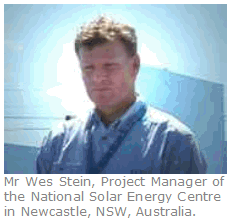|
|
|
|
|
|
|
News & Views item - October 2008 |
![]() Heather Ridout (AIG) and Wes Stein (CSIRO) Speak to the Greening of Australian
Industry. (October 14, 2008)
Heather Ridout (AIG) and Wes Stein (CSIRO) Speak to the Greening of Australian
Industry. (October 14, 2008)
 |
| Heather Ridout |
The chief executive of the Australian Industry Group, Heather Ridout, in an opinion piece for The Australian last week notes that while "10% of companies feel confident about managing the risks associated with climate change... what does this mean for the other 90%? What do they need to know" to be in a position to abet the necessary contributions to allay the changing climate.
Ms Ridout sees as a major impediment that "the importance of skills is frequently overlooked in all the policy debate around climate change". In short Australian industry will have to acquire new skills to do the new jobs that will be required by new industries, and she refers to: "CSIRO modelling [which]suggests that in order to make deep cuts in Australia's greenhouse emissions, it will be necessary to provide green skills for up to 3.25 million workers in sectors that have a high environmental impact. Many other low environmental impact industries will also require green-collar jobs as Australia moves to meet deep cuts in its emissions between 2020 and 2050."
In order for Australia to be effective in reducing the anthropogenic
contribution to global warming a "co-ordinated" effort between the public and
private sectors must be undertaken to overcome the debilitating skills shortages
as well as providing investment by both sectors to resource "green industry".
industry".
Yesterday, Wes Stein delivering the sixth annual Malcolm McIntosh memorial lecture, which honours the memory of the former CSIRO's chief executive, told his audience that solar thermal energy could provide 25% of Australia's power by 2050, but what would be needed would be the means to construct "One solar power station a year... This is technology that likes to be built big.''
Mr Stein continued, however that: "There's plenty of work to be done. We need smarter solar collectors and clever optics to make more [and] better reflective surfaces. We also need to come up with some fairly fancy new materials that can handle hot-spot temperatures and we can still improve thermal efficiency.''
Were the means provided, solar thermal energy could be collected, stored as synthetic natural gas (syngas) and ''transported around the world. If you convert solar energy into liquid transport fuels, in a sunny environment somewhere in Australia, then three days later it's being exported for use in Tokyo or elsewhere around the world, and he emphasised the point that the debate over whether solar thermal energy collection could provide baseload power for Australia's grid was ''a furphy question''.